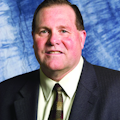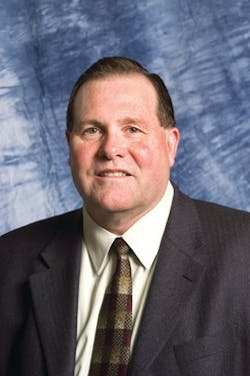Fire Politics: Tampa 2: Updating The Path Forward
One of the realities of politics is that it’s present in everything we do that really matters in the fire service. Sometimes, the politics is internal within the fire service, sometimes it’s external and sometimes it’s both. To address the full spectrum of firefighter safety and survival, the process can require operational changes, cultural shifts, training, equipment innovations, etc. But it can also involve political solutions that might drive the continuing progress and success of the efforts.
2004 Tampa summit
Many representatives of the fire service were in Tampa, FL, in March 2004 at the Firefighter Life Safety Summit. Representatives from fire departments and the major fire service organizations met to develop a roadmap that might reduce firefighter injuries and line-of-duty deaths. The summit was hosted by the National Fallen Firefighters Foundation (NFFF) and the U.S. Fire Administration (USFA). As the 2004 summit was in the planning stages, the hope was that 50 or so people would attend. Participants were responsible for their own expenses, so the planners weren’t sure how many to expect. What a pleasant surprise when more than 250 attendees made their way to Tampa to be part of that summit.
Two goals were established in conjunction with the 2004 Tampa summit, and they guided the work of the delegates:
1. Reduce the number of firefighter line-of-duty deaths by 25% in five years.
2. Reduce the number of firefighter line-of-duty deaths by 50% in 10 years.
The summit planners had assembled a very talented team to help guide and staff the deliberations. On the first day of the summit, the delegates were divided into six domains of focus:
1. Vehicles
2. Health and wellness
3. Research and training
4. Wildland firefighting
5. Structural firefighting
6. Prevention and education
Several follow-up regional meetings were held in the months following the summit at different locations in the United States in an effort to flush out details provided by a wide range of stakeholders. These same six domains actually drove the agendas for those regional meetings, and they were also used as focus areas for a follow-up summit held in Novato, CA, in March 2007.
What incrementally emerged from all of this work – beginning with the 2004 summit – were the 16 Firefighter Life Safety Initiatives. They had been developed by the fire service for the fire service. These initiatives formed the basis of what became the Everyone Goes Home program and other efforts as well.
Tampa 2
More than 350 delegates gathered in Tampa, FL, March 10-13, 2014, to participate in what had been called Tampa 2. Ten years after the initial summit, a group met to review what had transpired since 2004, but more importantly, to create a path forward towards greater success.
Tampa 2 was hosted by the NFFF through a federal grant and several sponsorships, and just as in 2004, fire departments and fire service organizations were well represented. More than half of the delegates, staff, survivors and volunteers who were present at Tampa 2 were not at the 2004 Summit.
Some of the participants at Tampa 2 were representatives of past and current efforts, but many represented the generations of the future as well. After all, it would be the younger delegates who would form the catalyst for leading this effort as leadership batons were passed to them at some point in the future.
The deliberations at Tampa were full of energy and the delegates were truly inspired to work towards reducing firefighter injuries and line-of-duty deaths. They asked each other tough questions about whether the fire service was truly addressing the most critical hazards that result in job-related injuries, illnesses and deaths of our nation’s firefighters. The most important thing to those in attendance was clearly that all career and volunteer firefighters, their families, as well as the public, would benefit significantly from the work at Tampa 2. As the various groups reported out on the final day, the quality of their work and their commitment to the process were quite evident.
Success depends on the fire service and others
The outputs from Tampa 2 are currently being analyzed and refined, and will serve as the catalyst for future efforts when that work is completed. There is little doubt that the fire service still has a long way to go with this endeavor. It will be ongoing because there will never be a point where it can stop. It should be clearly noted that several major fire service organizations worked long before (and since) the 2004 Tampa Summit to keep firefighters as safe as possible. It is clear that the NFFF will need to continue to partner with all of the national fire service organizations and other partners if the work from Tampa 2 is to be brought to life through various decentralized programs and mechanisms.
There are also political issues that need to be addressed as the fire service proceeds with these efforts. For example, staffing and deployment have significant impacts on the quality of service delivery, and they affect firefighter safety and survival significantly. Another issue policy-makers must address is acknowledging that firefighters are often exposed to hazards that can render them casualties from diseases that are related to on-the-job exposures. In many jurisdictions, this will require redefining what is included within the spectrum of “firefighter job-related injuries and fatalities.” Dealing with these types of issues often requires political decisions revolving around research, education, garnering support, budgets and other factors.
So bottom line, there is a lot of work to be done to make firefighters as safe as we can reasonably make them. The 2004 Tampa Summit was very helpful in many ways, and now, Tampa 2 needs to be a catalyst to continue to move the process forward. This column only touches the surface of what might be forthcoming, but through subsequent columns, I will continue to periodically address the level of progress that is being achieved – as well as obstacles that get in the way of that progress.
Dennis Compton presents “If You’re an Officer, Be a Leader” and moderates the “Chiefs/Commissioners Panel” at Firehouse Expo 2014.
DENNIS COMPTON, a Firehouse® contributing editor, is a speaker and the author of Progressive Leadership Principles, Concepts and Tools, the When in Doubt, Lead! books, the book Mental Aspects of Performance for Firefighters and Fire Officers, and many articles, chapters and other publications. He was the fire chief in Mesa, AZ, for five years and assistant fire chief in Phoenix, where he served for 27 years. Compton is past chairman of the Executive Board of the International Fire Service Training Association (IFSTA) and past chairman of the Congressional Fire Services Institute’s National Advisory Committee. He is currently chairman of the National Fallen Firefighters Foundation Board of Directors.
About the Author

Dennis Compton
Chief
DENNIS COMPTON is a well-known speaker and the author of several books, including his most recent offering titled Progressive Leadership Principles, Concepts and Tools. He also authored the three-part series of books titled When in Doubt, Lead, the book Mental Aspects of Performance for Firefighters and Fire Officers, as well as many articles, chapters and other publications. Compton was the fire chief in Mesa, AZ, for five years and an assistant fire chief in Phoenix, where he served for 27 years. He is past chairman of the Executive Board of the International Fire Service Training Association (IFSTA) and past chairman of the Congressional Fire Services Institute (CFSI) National Advisory Committee. Compton is currently the chairman of the National Fallen Firefighters Foundation (NFFF) Board of Directors and co-chairs the Fire Service-Based EMS Advocates Steering Committee.
